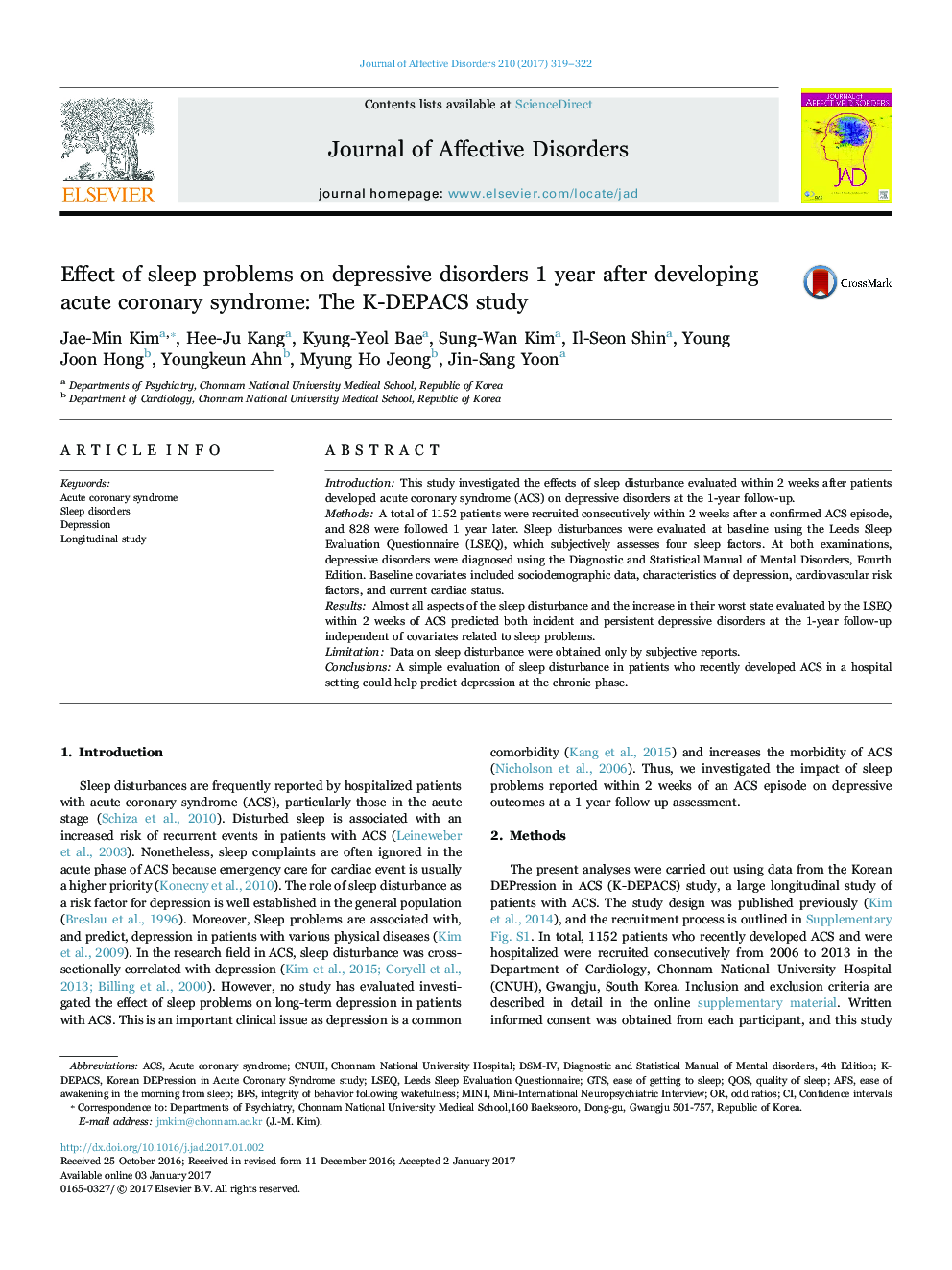| Article ID | Journal | Published Year | Pages | File Type |
|---|---|---|---|---|
| 5722409 | Journal of Affective Disorders | 2017 | 4 Pages |
â¢Sleep disturbance within 2 weeks of ACS predicted depression 1 year later.â¢The predictability was independent of those covariates related to sleep problem.â¢Sleep problem evaluation is recommended in recently developed ACS patients.â¢This could be helpful in predicting depression in the chronic phase of ACS.
IntroductionThis study investigated the effects of sleep disturbance evaluated within 2 weeks after patients developed acute coronary syndrome (ACS) on depressive disorders at the 1-year follow-up.MethodsA total of 1152 patients were recruited consecutively within 2 weeks after a confirmed ACS episode, and 828 were followed 1 year later. Sleep disturbances were evaluated at baseline using the Leeds Sleep Evaluation Questionnaire (LSEQ), which subjectively assesses four sleep factors. At both examinations, depressive disorders were diagnosed using the Diagnostic and Statistical Manual of Mental Disorders, Fourth Edition. Baseline covariates included sociodemographic data, characteristics of depression, cardiovascular risk factors, and current cardiac status.ResultsAlmost all aspects of the sleep disturbance and the increase in their worst state evaluated by the LSEQ within 2 weeks of ACS predicted both incident and persistent depressive disorders at the 1-year follow-up independent of covariates related to sleep problems.LimitationData on sleep disturbance were obtained only by subjective reports.ConclusionsA simple evaluation of sleep disturbance in patients who recently developed ACS in a hospital setting could help predict depression at the chronic phase.
